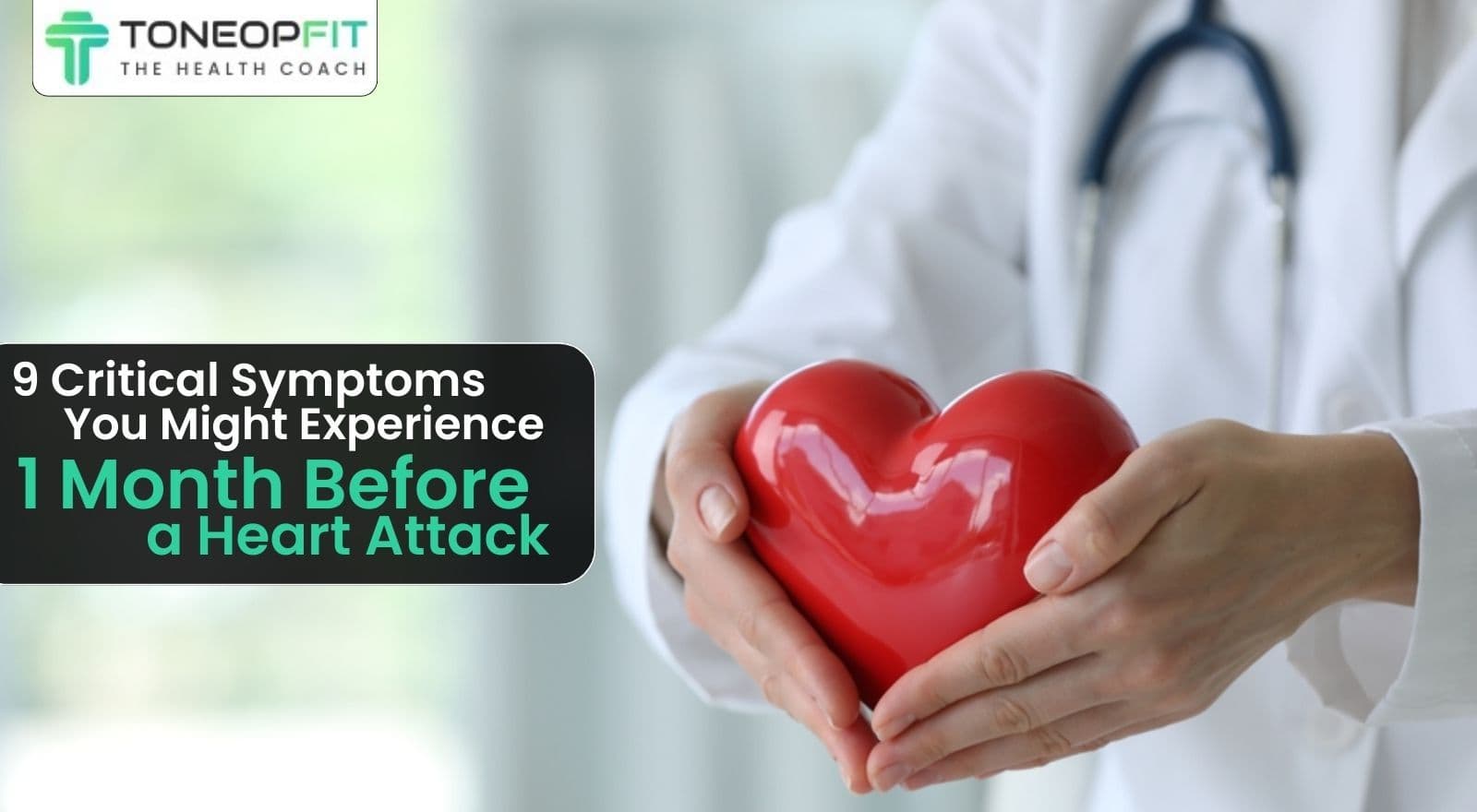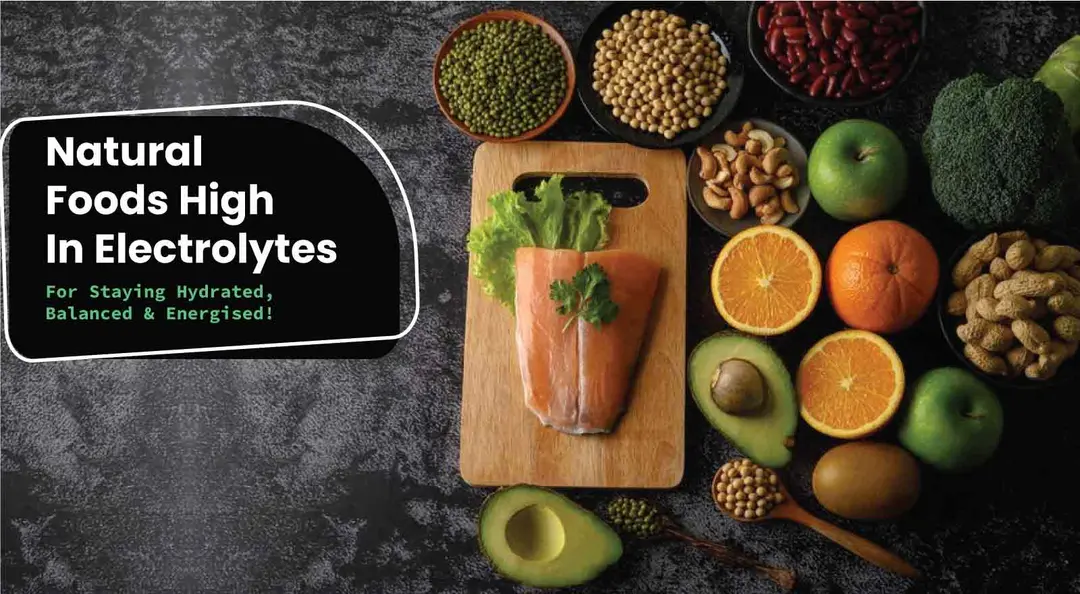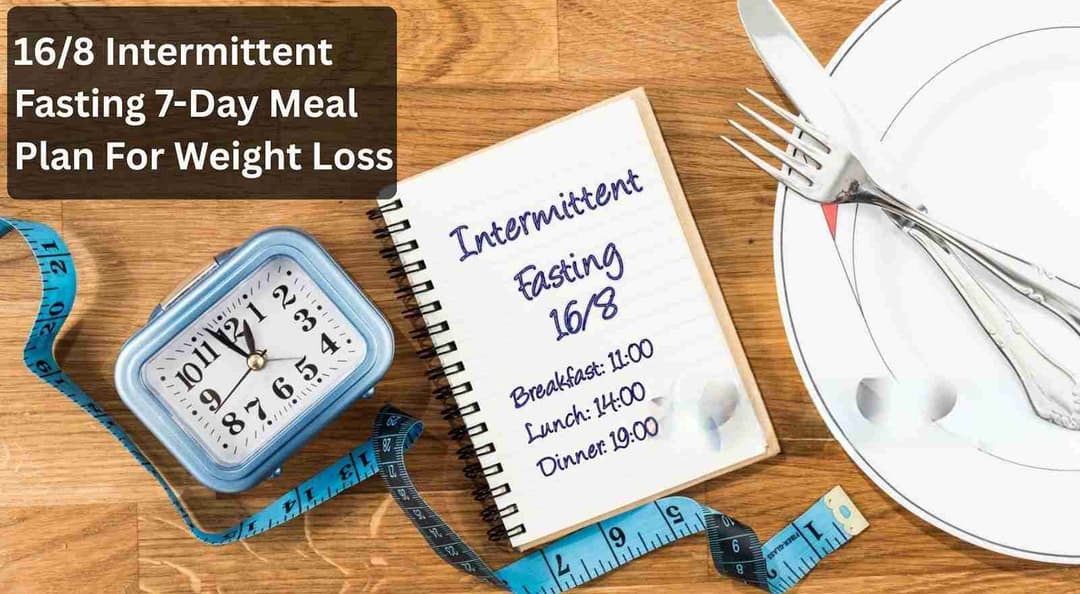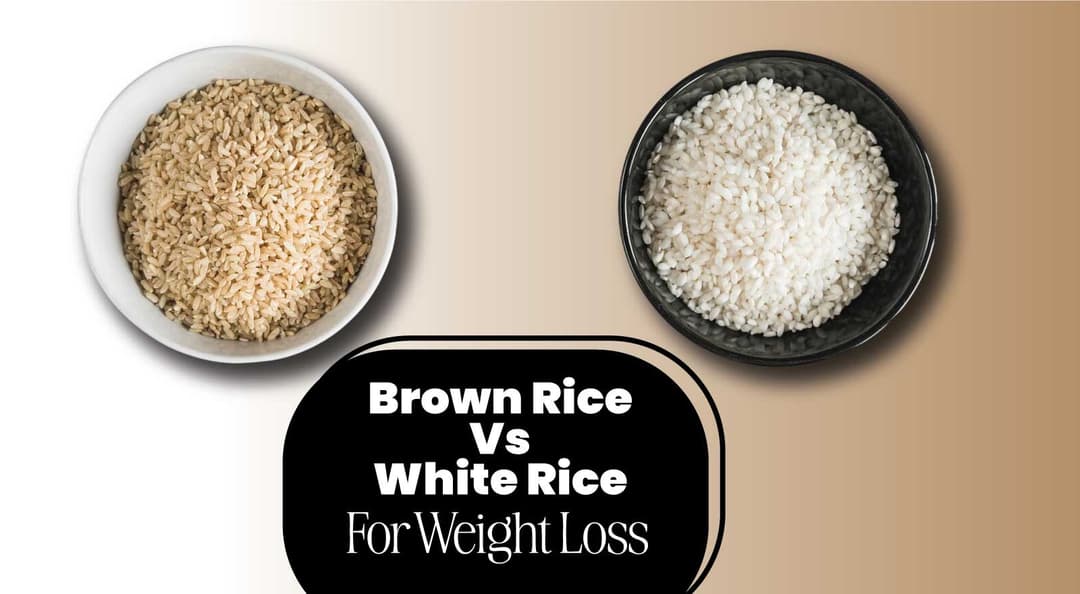Heart disease is the leading cause of death in both men and women worldwide. In India, nearly 8,05,000 people suffer a heart attack each year. For about 6,05,000 of them, this is their first heart attack.
Heart attacks can occur suddenly, without warning, but many patients may show warning signs hours, days, or even weeks beforehand. Some may even show warning signs 1 month before the heart attack. These early heart attack symptoms are known as prodromal symptoms. Recognising these warning signs of a heart attack can help you seek prompt medical help and increase your chances of a full recovery.
Read on to learn more about 1 month before heart attack symptoms and other distinguishable signs between men and women that may help you save your life or that of a loved one.
Table of Contents
- What Happens 1 Month Before A Heart Attack? 9 Critical Symptoms To Stay Alert For
- 6 Warning Signs of Heart Attack in Women a Month Before It Happens
- 6 Signs of Heart Attack in Men: A Month Before the Event
- Expert’s Advice
- The Final Say
- FAQs
- References
What Happens 1 Month Before A Heart Attack? 9 Critical Symptoms To Stay Alert For
Here are some of the most common signs of a heart attack for both men and women, including 1 month before heart attack symptoms that they might experience leading up to the event:
1. Frequent Chest Pain
Chest pain or chest discomfort is perhaps the most common symptom of an approaching heart attack. You may feel pressure or tightness in your chest, or it may feel like your chest is being squeezed. This pain may even radiate to your arms, neck, jaw, back, or lower left side of the abdomen and is often accompanied by sweating, shortness of breath, nausea, or vomiting.
Chest pain that lasts more than a few minutes may be a cause for concern, and you should get medical attention immediately. Don't wait for the pain to go away on its own. This could be a sign of a heart attack. It's important to remember that this heart attack symptom may not be experienced by everyone who has a heart attack.
Also Read: World Heart Day 2024: Theme, Motto And Engaging Activities To Promote Heart Health
2. Fatigue
Feeling fatigued after a busy day or a sleepless night is typical, but it can be another common sign of a heart attack when there is no apparent reason for the fatigue. You may feel more tired than usual or feel like you're not getting enough rest. This may be because the blood flow to the heart is reduced, forcing the heart to pump blood harder throughout the body. About 70% of women experience fatigue before a heart attack.
3. Dizziness
You may feel dizzy or weak for several reasons, such as skipping a meal or being dehydrated, but this may also be a sign of a heart attack if no other signs accompany it. If dizziness is combined with chest pain or shortness of breath, a heart attack may be imminent. You may feel like you are going to faint, or the room is spinning. This can be because of the decreased blood flow to the brain or irregular heartbeats due to a heart attack.
4. Indigestion
Abdominal pain shows up as a symptom in over 50% of heart attacks in both men and women. Symptoms include an upset stomach, nausea when the stomach is empty or full, and abdominal bloating. Acid reflux and heartburn are also often ignored heart attack symptoms. Listen to your body and seek medical help immediately if you feel unusual.
To alleviate indigestion symptoms, try ToneOp Care’s Digest 360 tablets, which contain the power of 12 powerful enzymes to restore gut harmony.
Also Read: Yoga For Digestive Health: Improve Gut Function And Relieve Discomfort
5. Sweating
Unless you are in your perimenopause, menopause or have just finished exercising, excessive sweating or cold sweats are unusual and may be a sign of an oncoming heart attack. This happens because when something goes wrong with your body, it switches into fight-or-flight mode in response to stress, which can cause you to sweat.
6. Swollen Legs, Ankles And Feet
Unusual swelling in the legs, ankles, and feet can indicate that the blood is not pumping properly throughout the body, indicating a possibility of an oncoming heart attack.
7. Irregular Heartbeat
If you take too much caffeine in the morning, you may feel like your heart is beating too fast, which is normal. However, in rare cases, this may be a symptom of a medical condition called atrial fibrillation and maybe a heart attack symptom. When the heart is not getting enough blood, all parts of the body are affected, and the side effects can cause many problems.
8. Pain In Other Parts Of The Body
You may also experience pain or discomfort in body parts other than your chest. These may include the arms, back, neck, jaw, or abdomen. The pain can feel like pressure or fullness, and it can come and go or last for more than a few minutes. This could be your body sending you signals when you have a heart problem.
9. Shortness of Breath
Another common heart attack symptom is shortness of breath or dyspnea. You may feel like you can’t breathe or have trouble breathing. You may also experience wheezing or coughing. This can happen when your heart can't pump enough blood to meet your body's needs. Shortness of breath may also be accompanied by chest pain or discomfort, fatigue, dizziness, or nausea.
Also Read: Cardiac Care in Action: 15 Exercises For Heart Patients To Empower Health Every Day!
6 Warning Signs of Heart Attack in Women a Month Before It Happens
According to a survey that examined data from more than 500 women who had survived a heart attack, nearly 95% reported experiencing unusual physical changes in the months leading up to the event. The six most common heart attack symptoms for women are:
1. Chest pain or discomfort — This is the most common symptom of a heart attack, but some women may experience it differently than men. It may feel tight or full, and the pain may be anywhere in the chest, not just on the left side.
2. Pain in the arm(s), back, neck, or jaw — This type of pain is usually more common in women than men. The pain may be gradual or sudden and may wax and wane before becoming intense. If you are sleeping, it may wake you up.
3. Stomach ache — Sometimes, people mistake stomach pain for a heart attack with heartburn, the flu, or a stomach ulcer. Other times, women experience burning pain in the abdomen or strong abdominal pressure that feels like an elephant sitting on their belly, which can be a heart attack symptom.
4. Shortness of breath, nausea or dizziness — If you have trouble breathing for no apparent reason, it may be a heart attack symptom, especially if you have one or more other symptoms. “It can feel like you've run a marathon when you haven't even moved.
5. Sweating — Cold sweat is common in women who have had a heart attack previously. It will feel more like stress-related sweating than sweating from exercising or spending time outside in the heat.
6. Fatigue — Some women who have had a heart attack feel extremely tired even after sitting for a while or not moving much.
Also Read: Top 8 Morning Exercises For Women To Revitalise Your Well-Being
6 Signs of Heart Attack in Men: A Month Before the Event
Heart attack symptoms in men can include other common symptoms. Still, they may also experience additional symptoms, such as sweating, pain radiating to the arms or jaw, and a feeling of impending doom. Recognising these specific symptoms can help men understand the severity of their condition and seek immediate medical assistance.
Heart attack symptoms in men may include the following:
1. Chest pressure, pain or discomfort — It may occur in the centre of the chest, lasting more than a few minutes or in a cycle of occurrence, resolution and return.
2. Dizziness — It may indicate reduced blood flow to the brain, signalling the need for immediate medical attention.
3. Arrhythmia — A fast, irregular heartbeat can be a critical symptom of a heart attack in men that may manifest as palpitations or a racing heart, possibly indicating an oncoming heart attack.
4. Dyspnea — Difficulty breathing can be a key symptom of a heart attack in men, often occurring alongside chest pain or discomfort.
5. Pain, stiffness, or numbness — These could manifest in areas above the waist, such as numbness in the left arm and hand, back, neck, jaw, or stomach. Sometimes, the pain can be experienced in both hands.
6. Nausea or Lightheadedness — These can be alarming heart attack symptoms in men, indicating potential cardiac distress and often accompanying other signs like chest pain or sweating.
Also Read: 8 Amazing Morning Exercises For Men: Benefits And Insights On 5-5-5-30 Morning Workout
Expert’s Advice
Heart attack prevention is possible, but only for those who recognise and act on these warning signs. The best way to try to prevent a heart attack is to maintain a healthy weight, eat a healthy diet, regular exercise and avoiding smoking. If you feel the symptoms of a heart attack, do not waste time and make an appointment with a local cardiologist immediately.
Health Expert
Lavina Chauhan
The Final Say
Heart attacks caused by a partial blockage usually show prodromal symptoms a week before the emergency, while an attack from a blocked artery can present 1 month before heart attack symptoms. Chest pain, discomfort in the arms, back and neck, and shortness of breath are the most common symptoms of a heart attack. However, heart attacks can also cause anyone to experience unusual levels of fatigue, sleep problems and shortness of breath for up to a month.
So stay alert and immediately contact a doctor if you experience any of the following concerning symptoms.
FAQs
1. How to avoid a heart attack?
The best way to try to avoid a heart attack is to maintain a healthy diet, keep a healthy weight, exercise regularly and avoid smoking.
2. How can I test myself for a heart attack?
You can test yourself for a heart attack by monitoring for symptoms like chest pain, shortness of breath, or unusual fatigue. If you experience any of these signs, it's crucial to seek medical attention immediately.
3. How do you know you are having a heart attack?
You may suspect a heart attack if you experience symptoms like chest pain, sweating, shortness of breath, nausea, or pain radiating to the arms or jaw.
4. What is the 1 month before stroke symptoms?
Some potential symptoms you might experience a month before a stroke include unusual headaches, dizziness, and sudden weakness on one side of the body. Other signs can be difficulty speaking, confusion, and changes in vision, which should not be ignored.
References
- https://www.webmd.com/heart-disease/features/womens-heart-attack-symptoms
- https://www.healthline.com/health/heart-attack/6-signs-of-heart-attack-a-month-before#in-men-and-women
- https://blog.ochsner.org/articles/9-warning-signs-of-a-heart-attack-from-your-body-a-month-before
- https://www.medcare.ae/en/health-library/signs-of-heart-attack-months-before.html
- https://www.medicalnewstoday.com/articles/signs-of-heart-attack-a-month-before#summary
- https://www.medicalnewstoday.com/articles/321528#symptoms
- https://www.verywellhealth.com/signs-of-a-heart-attack-in-men-8349490
- https://www.jagran.com/lifestyle/health-heart-attack-in-women-warning-signs-of-heart-attack-23023544.html
About ToneOp Fit
ToneOp Fit is a platform dedicated to improving and maintaining good health through a comprehensive range of goal-oriented health plans with up to 3 Coach support. With a range of Weight Management, Medical Condition, Detox Plans, and Face Yoga Plans, the app also provides premium health trackers, recipes and health content. Get customised diet, fitness, naturopathy & yoga plans and transform yourself with ToneOp.









































